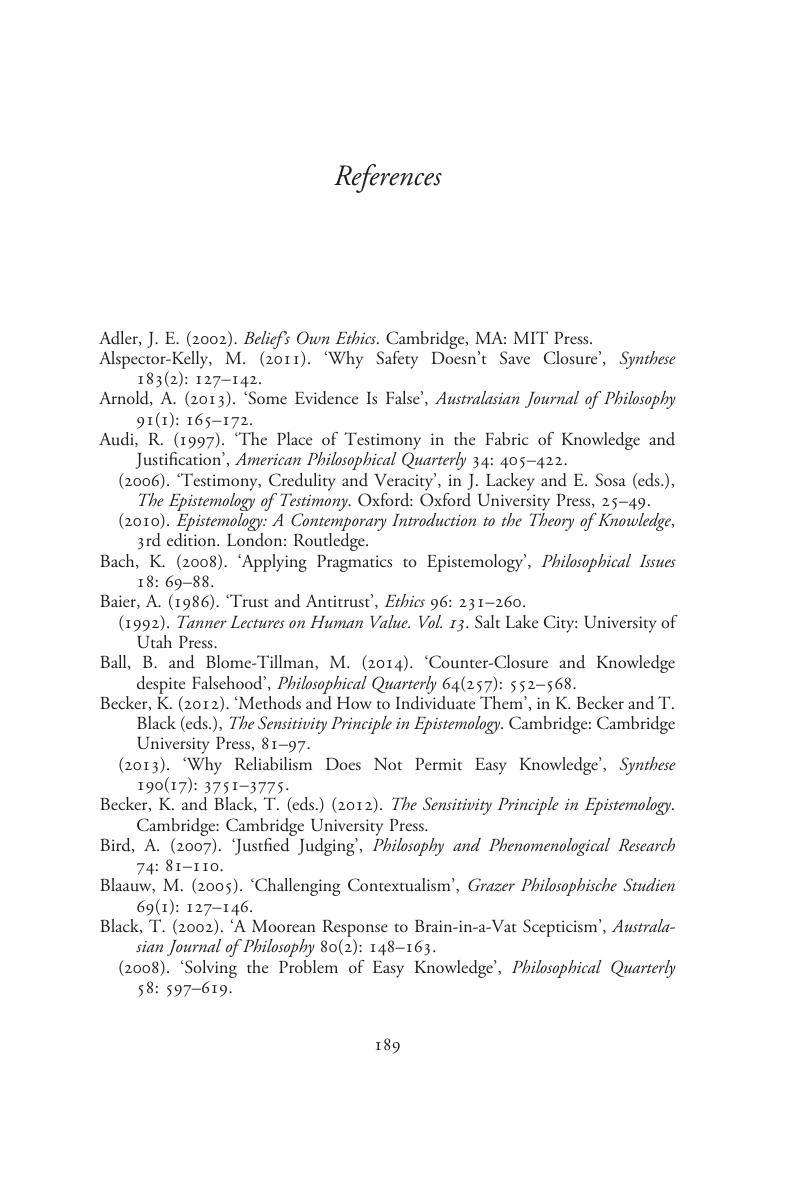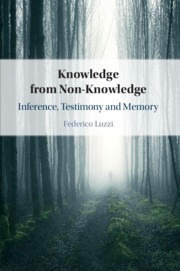Book contents
- Knowledge from Non-Knowledge
- Knowledge from Non-Knowledge
- Copyright page
- Contents
- Preface
- Acknowledgements
- Chapter 1 Knowledge from Knowledge
- Chapter 2 Inferential Knowledge from Falsehood
- Chapter 3 Inferential Knowledge from Unknown Truth
- Chapter 4 Explaining Knowledge from Non-Knowledge
- Chapter 5 Testimony and Knowledge from Non-Knowledge
- Chapter 6 Memory and Knowledge from Non-Knowledge
- Chapter 7 Knowledge from Non-Knowledge in Inference, Testimony and Memory
- References
- Index
- References
References
Published online by Cambridge University Press: 26 July 2019
- Knowledge from Non-Knowledge
- Knowledge from Non-Knowledge
- Copyright page
- Contents
- Preface
- Acknowledgements
- Chapter 1 Knowledge from Knowledge
- Chapter 2 Inferential Knowledge from Falsehood
- Chapter 3 Inferential Knowledge from Unknown Truth
- Chapter 4 Explaining Knowledge from Non-Knowledge
- Chapter 5 Testimony and Knowledge from Non-Knowledge
- Chapter 6 Memory and Knowledge from Non-Knowledge
- Chapter 7 Knowledge from Non-Knowledge in Inference, Testimony and Memory
- References
- Index
- References
Summary

- Type
- Chapter
- Information
- Knowledge from Non-KnowledgeInference, Testimony and Memory, pp. 189 - 196Publisher: Cambridge University PressPrint publication year: 2019



